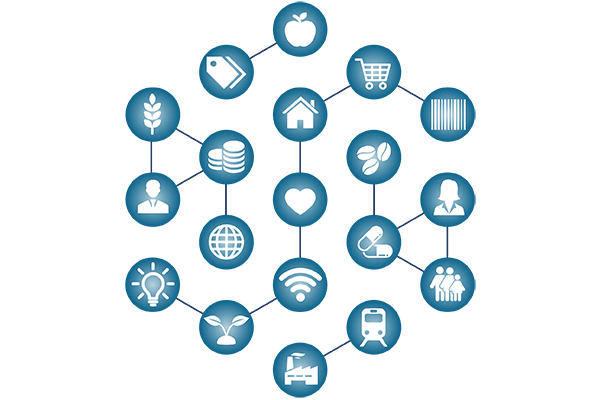


Why 1Language?
Language is the ultimate tool we have to communicate and to unite.
Yet, with the arrival of algorithms, language is about to change, potentially compromising our rights and conditions to communicate. These changes also may affect language's ability to unite.
It is here where 1LANGUAGE comes in and intends to address issues most fundamentally, by ensuring that everyone remains in control of their own communication and information sharing.
1LANGUAGE makes traditional language more powerful. Additionally, it makes traditional languages interoperable, more literally into '1'.

The Digital Age and the rise of Smart Languages
With the advent of digitalization and virtualization, algorithms become increasingly interwoven with traditional languages. When we combine algorithms with traditional languages we are fundamentally creating “Smart Languages”. Voice recognition services or automated response services are examples of smart languages. A smart language uses language as an input and combines and processes it with other information and algorithms to finally render it as output in the form of (traditional) language.

The Common Benefit of Languages is at stake
When we use English, the English language is ours to speak, ours to read and ours to write. Yet, it is not ours to own in the sense that we cannot make others pay for it or deny others to use it. The English language is and exists to our common benefit to communicate. That commonality of language is considered self-evident in today's society.
While the communal grounds of traditional language are more or less an accepted given, this is not at all the case for “smart languages”.
Algorithms are key components of “smart languages”. These algorithms are created to provide certain benefits. While there may not be an issue to obtain benefits from applying algorithms by themselves, algorithms could introduce conflicts of interest should they be used to benefit the owners and developers of smart languages at the cost of users or others.
Take for example the (smart) languages that we use to search information (on the internet) today. The smart languages we use to search are not at all commonly owned. Exclusive ownership makes that the owners of smart languages may not act in alignment with common interests.
The Vision of a Common Smart Language
1LANGUAGE is inspired by communication design principles that “nature uses to unite”. The vision of the first founders and a growing group of community members of 1LANGUAGE (and the UETP protocol) is that these (uniting) natural design principles need to remain accessible for everyone and everything, as nature intended.
The vision of 1LANGUAGE is that we need to commonly protect our common interests and digital and virtual freedoms by securing the commonality of smart languages.
1LANGUAGE is easily accessible and understandable, also for people without background in Information Technology (IT). Technically, 1LANGUAGE is a very structured natural language. It is like adding a layer of grammar to natural language.
By nature, 1LANGUAGE is interoperable among a large number of traditional spoken languages, hence, the knowledge of English or another widely spoken language is very likely not required if you want to use 1LANGUAGE.
1LANGUAGE makes it possible:
- to define and declare information
- to translate information (with precision)
- to change information at (your) source
- to manage information (including access and control)
- to relate information and meaning
- to query or search information
With the current accelerating pace of advancement in fields such as algorithms, artificial intelligence, big data, the quantum internet, the likelihood that we soon become substantially dependent on smart languages that are owned and controlled by a few, may make us lose our (digital and virtual) freedom and sovereignty.
The benefits of 1LANGUAGE and especially its language interoperability can only be realized with the help and use of many (just like the relevance of regular languages is determined by the use and maintenance of many).
Please join the 1LANGUAGE initiative.
